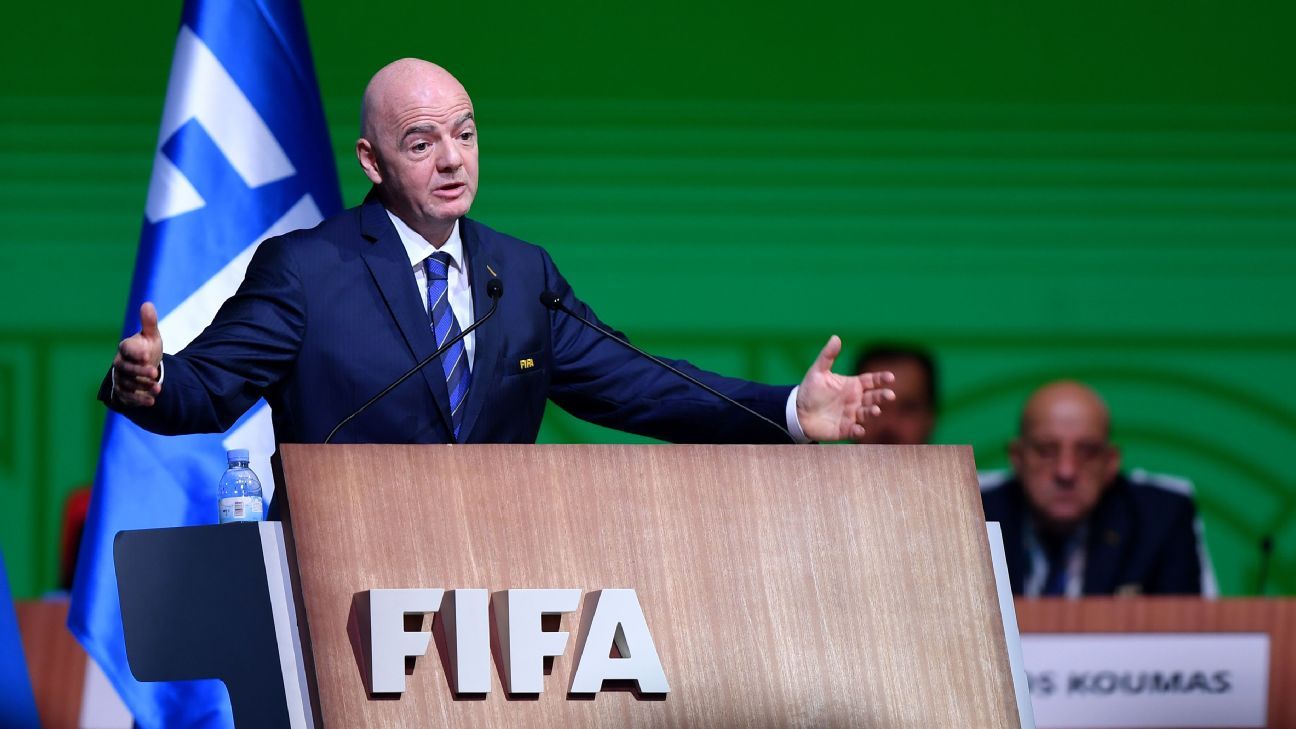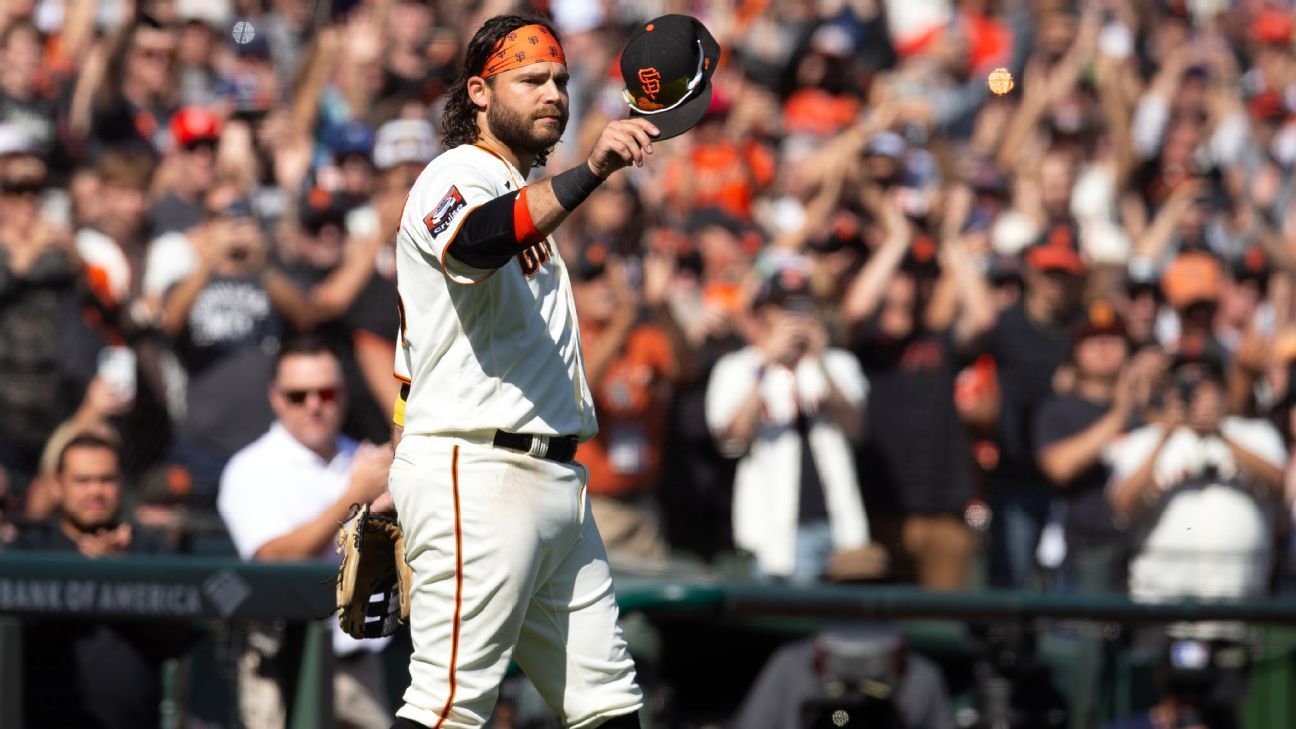
Gianni Infantino was re-elected as FIFA president during the 73rd Congress in Kigali, Rwanda on Thursday.
Infantino stood unopposed, making his re-election as head of football's governing body a formality, even if he is not universally popular among member associations for a range of reasons, including pushing for a failed plan to play the World Cup every two years.
- Stream on ESPN+: LaLiga, Bundesliga, more (U.S.)
The FIFA president opened his remarks with an anecdote describing how he came to Kigali when he first campaigned in 2016 and almost quit the race, likening his refusal to give up to how Rwanda recovered after its genocide in 1994.
"It is an incredible honour and privilege, and a great responsibility," Infantino said. "I promise to continue serving FIFA and football around the world.
"To those that love me, and I know there are many, and those who hate me ... I love you all."
Infantino confirmed FIFA's income hit record levels in the last cycle from 2019-22, but promised to substantially raise this again on the back of expanded men's and women's World Cup tournaments and the introduction of a 32-team Club World Cup.
"Revenues rose to a record $7.5 billion [in 2022] in a period that was hit by COVID-19. When I arrived, FIFA reserves stood at around $1bn, today they are at almost $4bn," Infantino said.
"We promise new record revenues for the next cycle of $11bn, and the new Club World Cup is not included in that figure, so it could increase by a couple of billion [more]."
Infantino said FIFA would continue to review the transfer system to "improve transparency" and suggested the organisation might discuss a salary cap.
"We must improve our regulations and the FIFA statutes. We will continue to evolve our good governance principles and look at the transfer system, and maybe have a discussion to improve transparency of transfer fees and salaries.
"It might be necessary to introduce a cap, we have to think how we can do that. We will look at it with all stakeholders and see what we can do."
Infantino was first elected in an Extraordinary Congress in 2016 following the resignation of his predecessor Sepp Blatter, and retained his position unopposed three years later.
But this counts as his second term of office and he will therefore be available for a third and final term in four years' time.















 Phone: (800) 737. 6040
Phone: (800) 737. 6040 Fax: (800) 825 5558
Fax: (800) 825 5558 Website:
Website:  Email:
Email: 






